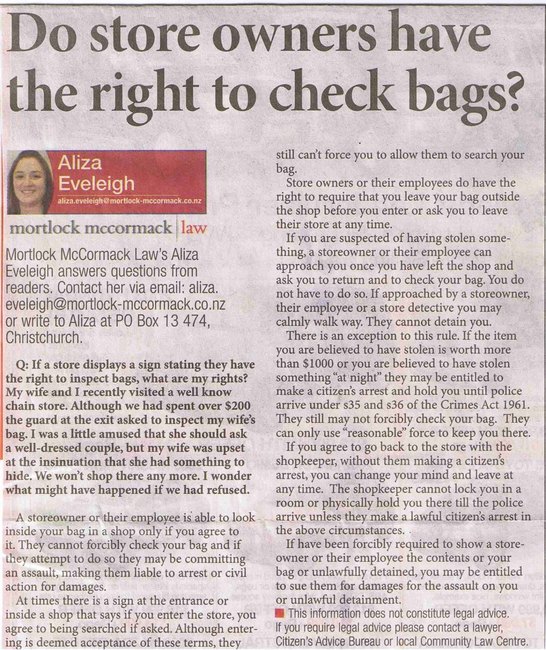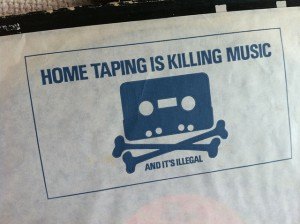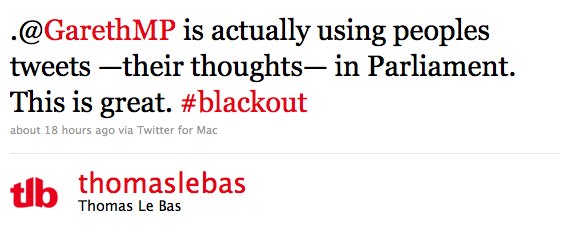Part 1 | Part 2 | Part 3
Just to clarify, there are other responses, they’re just not included in this post. These are the ones that I thought were interesting, for one reason or another, and are more based around transparency and the Official Information Act process than same-sex dates and after parties.
Does anyone remember St Patrick’s College in Wellington? Last year in June a story broke about how a male student, who happened to be gay, wasn’t allowed to bring a male friend (and ex-student) to his school ball/formal. The school said it was a management issue if they allowed ex-students or boys from other schools to attend school events.

Official Information Act
Idiot/Savant suggested sending an Official Information Act request to each state and integrated secondary school (private/independent schools aren’t covered under the OIA) asking whether they had a policy on same-sex dates would reveal how widespread this was.
I think I was either sick, or school was closed because of some natural event one day, so that’s what I did. I also included a question about events before and after the ball/formal.
I used the TKI schools database and Google Docs, and sent the request to schools that have year 12/13 students to the email address listed as their contact address.
The OIA technically applies to Board of Trustees, but as principals should be on the BOT, and know about what I was asking, I didn’t mind them replying.
Here’s the email:
Subject: Official Information Act Request – School Ball/Formal
Dear Sir/Madam at [school],
If you hold a school ball or formal could you please answer the following questions? Do you have a policy on same-sex dates? If so, could you please email me a copy of that policy?
In the past, has the school banned same-sex dates from attending the school ball or formal? If so, could you please provide details?
Do you have a policy on parties before/after the school ball or formal? If so, could you please email me a copy of that policy?
This email address is listed as the contact address for this school. If this email has found you in error, please let me know. http://www.justice.govt.nz/publications/global-publications/o/official-information-your-right-to-know/publication/.
Thank you in advance.
Yours faithfully
Matt Taylor
I sent a reminder email to schools that hadn’t replied around the middle of the 20 day response period. Some people didn’t like the part about complaining to the Ombudsmen (which you’ll see below).
Subject: Official Information Act Request – School Ball/Formal Follow-up
Dear Sir/Madam at [school],
I sent you an Official Information Act request on June 15th regarding school balls/formals. Under the Official Information Act, requests must be answered within 20 working days. I have not received a response from you to date. If I don’t receive a reply within 20 working days I can complain to the Ombudsmen. The Ministry of Justice explains the Official Information Act here: http://www.justice.govt.nz/publications/global-publications/o/official-information-your-right-to-know/publication/. For your reference my request is below.
If you hold a school ball or formal could you please answer the following questions?
Do you have a policy on same-sex dates? If so, could you please email me a copy of that policy? In the past, has the school banned same-sex dates from attending the school ball or formal? If so, could you please provide details?
Do you have a policy on parties before/after the school ball or formal? If so, could you please email me a copy of that policy?
Thank you in advance.
Yours faithfully
Matt Taylor
Over the next few weeks I’ll post some lessons learned and the responses I received back from the schools. Many of the requests/schools are before the Ombudsmen (like Idiot/Savant predicted, schools have minimal experience with the OIA [see below]). I’ll post the result of those when I get them.
John Holley from Liston College: “Firstly an apology on the delay beyond the 20 days for you OIA request. This is the first formal OIA request the school has had to deal with in a long time (if ever) so the staff were unsure how to deal with it.” [response to questions was below this]
Below are some interesting responses from some schools.
Spam
Some schools reported not receiving my original email. This might have been because of spam filters. Organizations need to occasionally flick through their spam folders for non-spam content.
Who are you??///???@@@!
Some schools were angry that I didn’t say who I was working for (no one), and exactly why I wanted the information (for the internets). They’re accountable to the people, and their policies and decisions should be transparent. Their response shouldn’t change depending on who is asking for the information and what they want it for (and the OIA doesn’t require people to disclose reasons for requesting information).
In most cases I replied back saying that it was for a blog post, that they weren’t the only school I was asking and that I don’t work for the media. I don’t think it was inappropriate to hold back information (basically hold the data hostage) before I responded to their questions, or complied with some extra request (like sending them a letter, sending them ID, phoning them etc.), which some schools did. I think this could be interpreted as their fear of the media. Some schools asked for more information about me and responded to the questions in the same email, which was fine.
Some of the schools below did eventually respond to the questions.
Steve Saville from Alfriston College: “Could you please identify yourself/organisation and explain why you are gathering information.”
Penny Mossman from Amuri Area School: “I/we have not received any previous email from your organisation. I do not like the threatening tone of your email [the second one, with the bit about the Ombudsman) and I will not respond to requests from any organisation that has not made itself personally known to us or one that we have no idea who they are.”
Tanya Phillips from Aranui High School: “Can you supply some information for us on this please;
What organisation do you represent?
What is this information being used for?
Where will this information be published?
As soon as we get that information, I will be more than happy to answer your questions.”
‘Admin’ from Baradene College: “Please send your formal request to our Board Chair: Mr Edmund Lawler, Chairman of the Baradene Board of Trustees, c/o Baradene College, Private Bag 28906, Remuera, Auckland, 1541. This will need to be on an official letterhead making your request explicit.”
Mason Stretch from Cromwell College: “Please provide our Board with some background to your request.”
Allan Vester from Edgewater College: “I am not sure about the Official Information Act request? Is this actually an official request or was the header there to get my attention.
I would be happy to answer your questions if I had some understanding of why you want the information?
Just one point on policies. There seems to be some idea that schools have policies for everything “Policy on Student parking” Policy on Towing Away Student Cars” etc.
The actual policies that schools must have as prescribed by the Education Act is actually quite small eg a Policy on Protected Disclosure is a requirement.
I think what you will find is that when people talk about policies they are actually talking about the commonly accepted procedures that the school applies in certain situations? [This is a very good point, I should have probably included procedures and practices in the wording of the emails]
If it is the school ball you are interested in then we will have procedures/ rules about which students or other persons are able to attend the ball, the time they must be at the Ball by, the standard of behaviour required etc but there is no policy on those.”
Murray Burton from Elim Christian College: “In accordance with section 9 (2) (k) of the Official information Act, we respectfully decline your request due to the following.
We at this stage have no information regarding the following:
Who is asking for the information, who they represent, their background etc…
For what purpose is this information requested
What part of society is represented
On what basis do you think your request is covered by the Act
Due to all these unknowns we regretfully feel that your request is of a nature that was not intended as part of the Purpose of this Act. “”
My reply:
“Thanks for your reply. I’ve identified myself as Matt Taylor and I’m not representing an organization.
The Official Information Act doesn’t require me to provide background or extra details on why I’m requesting the information.
I’m not sure what you mean by the society question.
The Official Information Act actually applies to your Board of Trustees, so if you’re not comfortable answering the questions please forward this request to your board’s chair.”
Murray: “As a full member of the Board of Trustees I am happy and authorized to work with you concerning your requests.
I would still like to know the following:
Please outline specifically why you wish to receive this information?
What will it be used for?”
My reply: “The Official Information Act doesn’t require me to provide background or extra details on why I’m requesting the information.”
Murray: “Please do not think that we are being uncooperative. We realise we need to comply with the law but we are also wise and discerning concerning our school and the release of information hence email process we are following with you is exactly on that basis.
I am more than happy to release your requested information when I am in receipt of your answers to the following questions
Please outline specifically why you wish to receive this information?
What will it be used for?”
[I didn’t provide the requested information and the request is currently before the Ombudsman.]
Donna Thian from Ellesmere College: “Before I pass this on for reply please identify who you are and why this is being asked of us.”
Jude Conway from Gisborne Girls’ High School: “I acknowledge receipt of your email requesting clarification of Gisborne Girls’ High School’s policy and procedure in respect of same-sex dates at school formals and parties associated with school formals. School management would be agreeable to answer your enquiries, however we ask if you would first advise the reason for your enquiry and the purpose for which you require the information.”
Roger File from Golden Bay High School: “I would be more than happy to provide that information, without an OIA request, but would like to know what you intend doing with it?”
Sandy Begg from Green Bay High School: “If you wish to have a conversation with me, please contact me on 817 8173 ex 216. I have no idea who your organisation is or who you are.”
Graham Robinson from Hamilton Boys’ High School: “Who do you represent and what is your interest? Are you a former student?” [I thought the former student question was interesting.]
Bruce Hart from Heretaunga College: “Our process around the ball is not a secret and I am quite happy to supply you the information you need. I didn’t respond as I thought your approach lacked common courtesy. All you need do is introduce yourself properly and ask for the information and I would be more than happy to oblige.”
Ron Ballantyne from Hurunui College: [after asking for a copy of the original email] “It might also be nice to know who you are and why you want this information??”
Rosey Mabin from Inglewood High School: “Thank you for both your emails. I do not provide information to people I don’t know. Neither of your emails tells me who you are and for what purpose you require the information. Perhaps you might be courteous to provide that detail.”
My response: “This is for a personal blog post.”
Rosey: “1. Perhaps I could use the same Act to get you to disclose more information about yourself? You seem particularly cagey in being transparent about your request, yet expect that in return from the respondents.
2. It is polite to give some background information when requesting information from strangers. You might like to consider doing so in future.
3. The job of principals is to lead teaching and learning in their schools. Responding to your sort of request is not an effective use of our time.” [response to questions was below this]
Nadia Rose from James Hargest College: “Please send your request to the school in a hard copy with a physical address and we will respond in hard copy to your physical address.”
My response: “Under the Official Information Act, requests aren’t required to be in written/hard copy form. Is there any particular reason why you’d like the request as a hard copy?”
Nadia: [response to questions]
Harold Leask from John Paul II High School: “I do not share such information with unidentified personal. You have provided no information about yourself or your organisation but I’m happy to discuss this issue with the ombudsman.”
Katherine-Mary Molloy from Kaikorai Valley College: “Who are you and under what authority do you ask for this information.”
Debby Peebles from Kaitaia Abundant Life School: “My Principal would like you to send you request in writing, on letterhead, with the official organisation that you belong too.”
Tracy O’Brien from Kavanagh College: “As a matter of policy the College does not respond to this type of official request via email. If you could please land mail your request to The Board Chair, Kavanagh College, 340 Rattray St, PO Box 737, Dunedin 9054 this matter will be responded to as soon as possible. As a matter of courtesy the Board would expect you to identify yourself or the organisation you represent and your interest in this matter. As N.Z school policies are a matter of public record I do not expect any difficulty in this information being released to you as soon as practicable.”
Kaye Saywell from Makoura College: “The Principal has requested that you please advise who you are and why you want this information.
How did you send your original request – was it by email or post? I receive the emails addressed to the College office and open the mail addressed to the Principal and have no record of receiving your original request.”
Dee Whitby from Michael Park School: “We are surprised at the tone of your communication and respectfully point out that your initial request does not request the information as per the Official Information Act [the OIA was mentioned in the subject line, and requests for information should be considered under the OIA whether it is mentioned or not. Regardless, the email should have been replied to mentioning the OIA or not] and it is not yet 20 working days. We frequently receive requests for information and given the busy environment of school life we endeavour to respond as soon as we are able. We also appreciate receiving more information from the sender.” [response to questions was below this]
John Russell from Naenae College: “Please identify yourself and your purposes”
Barbara Hewitt from Napier Girls’ High School: “Our Principal has requested me to find out who the information is for.”
Jenny Ellis from New Plymouth Girls’ High School: “I am happy to consider responding to your request on receipt of a letter from you that provides details of your business, where you can be contacted and how you intend using the information provided. Our school address is: Private Bag 2049, New Plymouth”
Carolyn Matthews from Otahuhu College: “Your enquiry needs to be in writing and addressed to the Principal. Please allow 20 working days for a response.”
Grant from Paeroa College: “Who are you and why do you want this information?”
Marie Gordon from Palmerston North Girls’ High School: “I am sorry but I have no idea who you are or who you represent. Any request for information such as this can be done so in writing with suitable identification.” [Does she want a scan of my driver licence? I’m not sure.]
My response: “[what the information is for]
The Official Information Act doesn’t require requests to be in writing, so this email request should be fine. Additionally, there is no requirement for identification to be provided with requests.”
Marie: “I am well aware of the OIA….thank you. I am not in the habit of responding to random e-mails….however, as the answers are quite simple…” [response to questions was below this]
David Matthews from Papakura High School: “I am not willing to provide you with the information you have requested without some more information from you. Who are you? What will the information be used for?”
Vaughan Couillault from Papatoetoe High School: “Feel free to give me a call.”
Wayne Wright from Reefton Area School: “Put the request in writing, sign it and post it. We do not deal with official information through electronic networks. Our physical address is 10 Victory Street Reefton 7830”
My response: “Under the Official Information Act, requests aren’t required to be in written/hard copy form. The information requested shouldn’t contain any sensitive information that could be compromised by being sent over email.”
[what the information is for]
Wayne: [response to questions] ‘I don’t know why you choose to use the “Official Information Act” line. I know some schools are pretty guarded about their activities, however in our case we are very busy people trying to make good things happen for our students. If something is not going to directly affect our kids, we don’t usually do it. As for having things in writing. Your electronic signature doesn’t cut the mustard for us [I didn’t send in a physical signature, so I guess it did], that’s our choice and that is highly appropriate for our setting.’
David Ormandy from Rodney College: “I am more than happy to answer your questions but could you please give me some information about yourself and the purpose of your request.”
Jai Kreyl from Rotorua Girls’ High School: “It is not clear from your email who you represent. Please provide more information before I forward your e-mail.”
Helen Fouhy from Sacred Heart College (Napier): “Before I answer any questions I would like to know who a little about you including who you represent, what invested interest you have and what will happen to any information you gather.
Answering emails from an unexplained source is not usually something I would do.”
And Shona Warrington from Sacred Heart College (Napier): “If you would like to pursue this any further, please phone Helen Fouhy to make an appointment to see her to discuss this further.”
Rose Sawaya from Sacred Heart Girls’ College (N Plymouth): “I was not impressed by the follow up version with the threat of the Ombudsman. Nowhere in your correspondence have you explained who you are or what you want the information for. If you are going to impose threats of this nature you should at least explain yourself.”
‘Southland Girls High School’ from Southland Girls’ High School: “With regard to your request below, we would politely point out that threats are not ever appreciated [underlining theirs], certainly when a courteous reminder would more than likely extract the same information.”
and
Deb Hay from Southland Girls High School: “The principal would like to know the reason for your request, and in what capacity you are asking?”
Mandy Page from St Catherines College (Kilbirnie): “Could you please send a paper copy of your request to
Jane Holloway
Principal
St Catherine’s College
POBox 14076
Kilbirnie
Wellington
Please enclose an address for reply mail”
My response: “Under the Official Information Act, requests aren’t required to be in written/hard copy form. Is there any particular reason why you’d like me to mail the request?
Mandy: “Yes I would like it in writing please, just to make it a formal request. That way we have your signature on the letter in case the BOT want to see any correspondence”
My response: “The Act accepts emailed requests as valid formal requests.”
Mandy: “Yes and it also states that requests are best made in writing and I am requesting this by written letter rather than email. Thank you.
- Requests are best made in writing, but you can ask for the information in person or by telephone too; and
- Keep a note of when, how and who you made your request to (and keep a copy of any requests made in writing).”
[The Department of Justice, where the above was quoted from, says requests are best made in writing likely so the information being requested is clear, not because they want people to cut down trees and sign in pen.]
Neal Swindells from St John’s College (Hastings): “I am not prepared to give out information unless I know who I am giving it to. I require a hard copy letter on the letterhead of the organisation who is asking for this information.”
Erik Pedersen (via Val) from St Matthew’s Collegiate (Masterton): “Suggest you ring. 06 370 1731
I will respond”
Philip Keenan from Stratford High School: “I have acouple of queries:
Why do you want this information and who are you?”
Gina Mason from Taihape Area School: “Could you please let me know who you are, who you are working for and the purpose for your questions.”
Hayley Hodson from Tamatea High School: “I sent you a reply the same day that I received your information request [I never received it, quote below suggests it might not have been sent to me] and asked that you please explain where you are from (what company/business) and for what purpose you are gathering this information.”
From: Nicola Ngarewa [principal]
Sent: Tuesday, 28 June 2011 3:02 p.m.
To: Hayley Hodson
Subject: RE: Official Information Act Request – School Ball/Formal Follow-up
Kia ora ra,
I was unsure as the purpose and intent of this email and mistakingly deleted it.
Answers as requested below
Alan Jay Mokoro Gillett from Te Wharekura o Te Rau Aroha: “I am a little reluctant to respond to this email – I am not too sure who you are? Are you from the Ministry of Education? I am ready to send this information to the Hamilton branch to follow up. You do not have any contact details – and this could be a hoax email. So I would prefer that you send me an explanation of who you are, and a phone number, so that I can discuss this issue with you, cordially.”
Hinematua Gillett [same person?]: “Thank you for sending me details regarding your process, but I am not sure whether you are an appropriate person for me to communicate with. My school is a Kura Aho Matua Wharekura, why should I provide you with information regarding our policies? I have not been instructed by the Council to do this. Please explain why I should provide you with these details, otherwise I will not be able to.”
‘Office’ from TKKM o Ngati Kahungunu Ki Heretaunga: “KO WAI KOE ???” [Another school replied to the whole request in Māori, which wasn’t helpful.]
Chris England from Tongariro School: “However so I can provide you with information that more fully answers your needs, could you please give me a little bit of background as to why you require the information, and how it is to be used?”
Kristine Mclachlan from Waimate High School: “Before I answer any questions on behalf of my school I would like you to know that we have not recieved any Official Information Request. We do not respond to threats made and I would like more information about why these questions are being asked. Who are you representing and what do you need the information for?”
Alison Gernhoefer from Westlake Girls’ High School: “I have no difficulty with the information that you require, but I would like to know your credentials and what organisation you represent please.”
Debra Ronke from Woodford House: “We did not reply to your email as you did not introduce yourself or indicate in any way why you wanted the information. I assumed that the email was spam and deleted it. I certainly do not reply to random emails without more information. We would be happy to assist you with your information; however, it would be appropriate if you could explain who you are and what organisation you are from. You are welcome to call me on the number listed below”
Gatekeepers
Correspondence between administration staff and senior management was occasionally forwarded on to me with replies. This correspondence often showed a lack of understanding around the Official Information Act. Here’s an example from Aurora College:
From: Annette Little
Sent: Thursday, 16 June 2011 12:41 p.m.
To: Robyn Hickman
Subject: FW: Official Information Act Request – School Ball/Formal
Not sure about this one Robyn – delete if you want to.
Annette
Costs
St Patrick’s College (Silverstream), [correction: not the St Patrick’s that started this], was the only school that requested costs to process the request. Because of the simple nature of the request, no other school asking for costs and their unwillingness to break down the costs for me it seems like they are trying to be difficult and hope that I will lose interest in the request, instead of asking for money because processing the request will cost them money.
Chrissy Fage from St Patrick’s College (Silverstream): “Their is an administration charge of $25 for the secreterial work required in answering this request. On receipt of this cheque, made payable to St Patrick’s College Board of Trustees we will respond to your request.”
Some schools liked making stuff up about the OIA
Denis Slowley from Bayfield High School: “Please note all Official Information Act Requests must be in writing [email is fine] quoting the date of the Act [the Act doesn’t need to be mentioned at all], the purpose of your request [reasons aren’t required] and the specific policies by name [questions are fine]. Such requests cannot be in the form of a fishing question as this one is [see below]” [response to questions was below this]
The Ombudsman explains “fishing expeditions” (pdf) (mirror):
“The fact that a request is for a large amount of information does not of itself mean that the request lacks due particularity. The term “fishing expedition” appears to have received general recognition in the vocabulary of those concerned with making decisions on requests for information. It should be clearly understood that this term is not recognised in the Act as a withholding reason. If the information requested meets the test of due particularity it cannot be refused simply on the basis that it is considered to be a fishing expedition. The request must be given proper consideration under the Act.”
Tim O’Connor from Palmerston North Boys’ High School: “If you want information from anyone I suggest you write specific requests rather than generic ones that are sent out randomly hoping for responses. You are welcome to complain the Ombudsman and I welcome a response as there are protocols around OIA requests [send in a question?] and you didn’t meet them in your initial e mail. I can’t say I find your approach amiable or holding any pertinance.” [response to questions was below this]
Copyright
David Olivier from St Peter’s College (Palmerston North): “A Reminder about the Procedure remaining the intellectual property of the College and not for reproduction for purposes other than laid out under the Official Information Act.”
This is an interesting statement.
Considering anyone could request the same document from St Peter’s College, I’m going to link to it here (pdf).
Who are you working for??//@@
Terehia Channings from Turakina Māori Girls’ College: “Firstly, please be informed that we have never at any time received an e-mail from you regarding school balls/formals etc…If you insist that you have, then please forward a copy of that e-mail that you sent. All e-mail that are sent to the office e-mail address are received by my PA and she does not recall receiving any such material. Upon receipt of a copy of your e-mail supposedly sent on the 15th June, I will then respond to your Official Information Act Request.”
From: TMGC Office [mailto:office [at] tmgc.school.nz]
Sent: Tuesday, 28 June 2011 4:31 p.m.
To: Terehia
Subject: FW: Official Information Act Request – School Ball/Formal Follow-up
This is the first time I have seen this email??
My response: “Thanks for your reply. The message was possibly intercepted by a spam filter on your end. I could send you a screenshot of the mail merge screen where it says that it sent okay, but that could of course be forged, you seem suspicious of whether I sent the original email. It seems a moot point to debate whether you received the email or not.”
Terehia: “Of course I am going to challenge your e-mail to us as a school due to the fact that you state that you have not received a response from us from your first e-mail, which we did not receive. Secondly, you point out that you can complain to the Ombudsmen if I don’t reply within twenty working days to this e-mail. Please refrain from insinuating that we do not fulfil our legal obligations as a school or myself, as a Principal. I do not appreciate such a demand [replying to three questions!!] being placed on us as school when we did not receive your e-mail on the 15th June. As you know, emails sent can be tracked. We have not found anything that has come from you on the 15th June. Your response to my e-mail would have been acceptable had you just concluded by ending your comments with the mail merge screen declaring that the message was sent. To continue by accusing me of being suspicious [the word supposedly was mentioned] and making the comment of a “moot point to debate” I find offensive. Please send me details of your Manager or Manageress as I would like to take this further. We will respond to the Official Information Act Request at our earliest convenience. I am aware of the timeframe.”
My response: “This is for a personal blog post, I’m not working under a manager.”
Terehia: “Please explain then why we are obligated as a school to complete the survey for a personal blog post. Please forward the documentation that clearly states our obligation as a school.”
My response: “Because of the Official Information Act.”
Terehia: “Please send me the contact details of another person, preferably in a Management position, that I can speak to with regards to your e-mails and the Official Information Act. I just find your approach and manner somewhat rude and disrespectful. I do not believe that you will be the only person collating this information from schools in the country and surely there is a person, a committee or a cluster that you are responsible to.”
My response: “Please forward my request to your Board of Trustee’s chair as the Act applies to the Board.”
Terehia: “That’s fine, I can do that however; I would still like to speak to someone that also collates this information from schools. A person in Management will be great.”
My response: “It really is just me.”
Terehia: “There is no-one that you are responsible to?”
My response: “No”
Terehia: “Indeed!”
I get banned from emailing a school
Jenny Gellen from Waitara High School: “In future, please don’t conact me regarding such matters”
I replied with “Sorry?”, but never got a response from Jenny.
Being difficult/a dick
Rob Sturch from Hastings Boys’ High school: [I thought this deserved a screenshot]

Alan Liddle from Te Puke High School: “Thank you for your enquiry. Our policies are available to the public on our website www.tepuke.school.nz” [response to same-sex question below]
My response: “Thanks for your reply. What is your policy on after/before ball parties?”
Alan: “As mentioned in my previous email our policies are on our website. Help yourself.”
My response: “I searched the site for ball policy, with no results.”
Alan: “Well done and therefore your conclusion will be…
Sent from my iPhone”
Do not question Wellington High School!!@@
Dominic Killalea from Wellington High School: “I have been forwarded your email requesting information from us. I find your tone aggressive and rude. I’m not sure if that’s how you want to appear. By my reckoning, this is the 9th working day since your request.” [response to questions was below this] and
Two days later, Prue Kelly from Wellington High School: “[response to questions]
Why don’t you research something that is educationally significant”
My response: ‘The Human Rights Commission receives “a number of complaints every year about pupils not being allowed to bring same-sex partners to school balls.”
You might not think something that is effectively homophobia is a very important issue, but I do.’
Prue: “If you knew anything about us you would know that we began the schools out programme”
One day later, Cathy Drummond forwarded Prue’s response to me again.
WORD YOUR QUESTION BETTER!!@@
Rod Harris from Christian Renewal School: “The reason why I did not respond is that we do not have a school ball.
Your request is that If [bolding, italicizing, underlining his] you hold a school ball or formal, could you please answer the following questions? The implication is clear that I only needed to respond if we held a school ball. [The question was worded poorly, but I think most organizations reply to emails to confirm they received them, unless they’re purposely ignoring them.]
To have an expectation for me to respond (as the threat of complaint to the ombudsman) makes the assumption that we do hold a ball. Because as a teaching Principal, I have little time for administration, and having the proliferation of e-mails that come into my e-mail from all different types of sources, I do not respond to e-mails unless I have to.
Next time could you please ensure that you phrase your question accurately to solicit the response that you require.”
Tina Johnson from Murchinson Area School: “We don’t hold a school ball – might of course be why we didn’t answer your questions?”
Earthquake guilt trip
Jan Croft or Sue Hume from Avonside Girls’ High: [I’m assuming Sue Hume is the principal who wrote it and Jan forwarded it on] “I would like you to understand that we are rather busy just now.
We are living in the midst of earthquakes. Our school is badly damaged.
Our girls travel across the city to learn at another school.
We are working really hard to re-establish our school in our community for next year. There are many, many difficulties and challenges.
School formals and after parties are not what is at the forefront of our minds.
From my understanding, there are a number of working days left for me to respond to your request.
A more conciliatory and appreciative tone might be more likely to elicit the response that you seek.”
[response to questions was below]
More soon.
Image credit: Niv Singer





 Their reply to
Their reply to 


 Notices from rights owners are sent to alleged infringers through their internet protocol address provider (effectively their internet service provider), like Telecom, Orcon and Slingshot. The order of the three notices (hence the three strikes name) are a detection notice, warning notice and then an enforcement notice. What notice you’re on is specific to each rights owner, eg. if you’re on the second notice, a warning notice, with
Notices from rights owners are sent to alleged infringers through their internet protocol address provider (effectively their internet service provider), like Telecom, Orcon and Slingshot. The order of the three notices (hence the three strikes name) are a detection notice, warning notice and then an enforcement notice. What notice you’re on is specific to each rights owner, eg. if you’re on the second notice, a warning notice, with  Yesterday the
Yesterday the  (
(